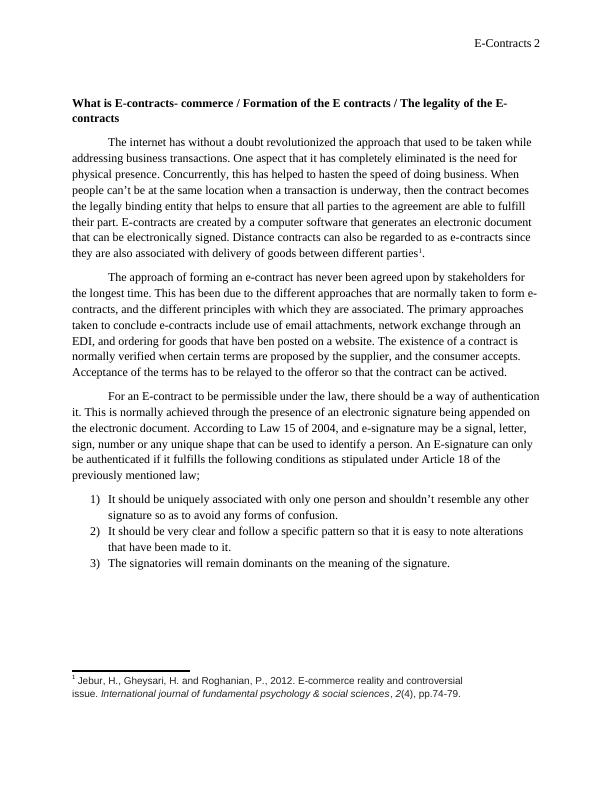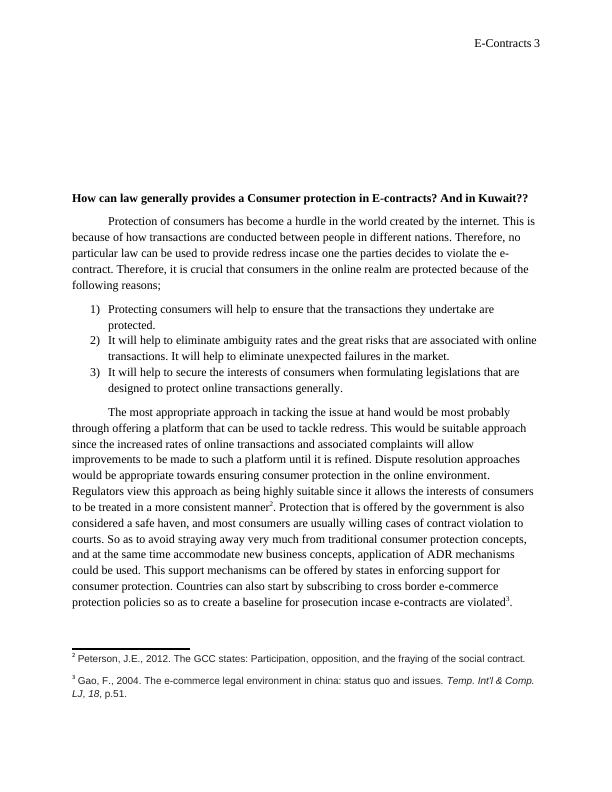E-Contracts: Formation, Legality, and Consumer Protection
Explaining the concept of consideration in contract law and its importance in creating enforceable contracts.
9 Pages3563 Words82 Views
Added on 2023-01-16
About This Document
This article discusses the formation and legality of e-contracts, including the different approaches taken to form e-contracts and the authentication of electronic signatures. It also explores how consumer protection is provided in e-contracts, both generally and in Kuwait. Additionally, it compares the electronic transaction laws of Kuwait and the GCC, highlighting the similarities and differences. The article also covers the regulation of electronic signatures and electronic payments in Kuwait.
E-Contracts: Formation, Legality, and Consumer Protection
Explaining the concept of consideration in contract law and its importance in creating enforceable contracts.
Added on 2023-01-16
ShareRelated Documents
End of preview
Want to access all the pages? Upload your documents or become a member.
Legislation and Case Law on E-commerce, Consumer Rights, and Business Competitions in Australia
|17
|3999
|33
E-Contracts in Canada: Understanding the Legal Framework
|4
|860
|50
E-Contracts in Canada: Scope, Legality, and Issues
|5
|766
|382
Internet Based Contracting Issues of Great Buys
|11
|458
|435
Contract Law for Users of E-Commerc
|14
|2807
|389
Business law - ppb 3133 PDF
|17
|6605
|265



